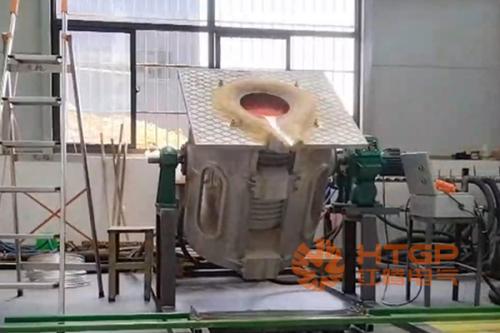What Factors Are Related to the Aluminum Yield in Aluminum Scrap Melting?

The aluminum
yield in scrap aluminum smelting is affected by multiple factors, which play a
key role in the smelting process.
Scrap Aluminum Quality
Aluminum scrap
comes from various sources and types, and its composition and impurity content
vary. High-quality aluminum scrap contains higher aluminum content, so the
aluminum yield after smelting is relatively high. On the contrary, low-quality
scrap aluminum contains more impurities, which may lead to increased aluminum
losses during the smelting process.
Melting Temperature
Melting
temperature is an important factor affecting aluminum yield. Appropriate
melting temperature can fully melt scrap aluminum and improve the recovery rate
of aluminum. However, too high a temperature may lead to oxidation and
volatilization of aluminum, thus reducing the yield.
Melting Time
The length of the smelting time will also affect the aluminum yield. Prolonged smelting may
result in further oxidation and loss of aluminum. Therefore, on the premise of
ensuring that the scrap aluminum is fully melted, the melting time should be
shortened as much as possible.
Smelting Equipment
The performance
and quality of smelting equipment have an important impact on aluminum yield.
Efficient smelting equipment can provide a better smelting environment and
reduce aluminum loss. In addition, the maintenance and cleanliness of the
equipment will also affect the melting effect.
Some advanced
smelting equipment also has an atmosphere control function, which can adjust the
atmosphere in the smelting furnace and reduce the contact between aluminum and
oxygen in the air, thereby reducing oxidation losses. For example, aluminum
oxidation can be reduced by introducing an inert gas, such as nitrogen or
argon, to replace the air in the smelting furnace.
Some smelting
furnaces are designed with impurity removal systems, which can effectively
remove impurities from scrap aluminum during the smelting process and improve
the purity of aluminum. The reduction of impurities not only improves the
quality of aluminum but also reduces losses during the smelting process.
Smelting Process
The selection
and operation of the smelting process will also affect the aluminum yield. A reasonable smelting process can reduce the loss of aluminum and improve the
recovery rate. For example, using appropriate flux and controlling the melting
atmosphere can have a positive impact on aluminum yield.
Operating Techniques
The technical
level and experience of the operators will also have an impact on the aluminum
yield. Skilled operations can reduce errors and losses during the smelting
process and increase the recovery rate of aluminum.
To sum up, the
aluminum yield in scrap aluminum smelting is affected by various factors such
as scrap aluminum quality, smelting temperature, smelting time, smelting
equipment, smelting process, and operating technology. In actual production,
these factors should be comprehensively considered to optimize the smelting
process and increase the aluminum yield.
Post Your Ad Here
Comments